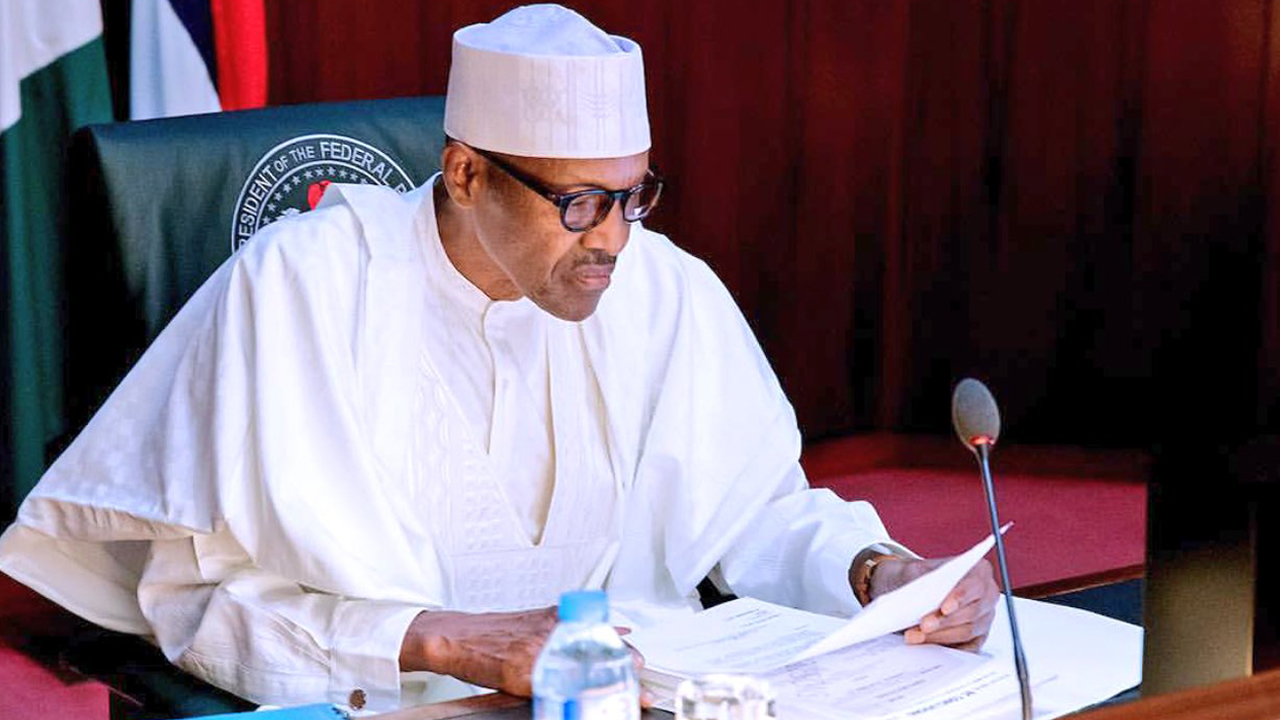A Statement By The Pro-Democracy and Leading Civil Rights Advocacy Group; Human Rights Writers Association of Nigeria (HURIWA) Condemning The Fruitless Attempts By President Muhammadu Buhari To Defend His Government’s Excessive Chase For Loans, Asking What His Government Has Been with the Revenues Internally and Externally Generated Since 2015.
Background:
Undoubtedly, countries of the world in general and developing countries in particular resort to borrowings, ideally, to bridge up any resource availability gap in tackling pressing and essential economic needs that tend to improve on the welfare and standard of living of the citizenry.
As many scholars have argued that no government is an island on its own and would require aid so as to perform efficiently and effectively. Nigerian federal government’s bid to borrow at any point in time is not a problem so long as the proceeds are utilized in a productive way that will facilitate the eventual servicing, liquidation of the debt and economic development of the debtor-country.
Nonetheless, excessive external debt more often than not impedes economic growth as the burden of debt on indebted countries has resulted in channeling of funds to debt servicing, instead of allocating resources to crucial developmental project. Hence, the problem of debt has assumed a crisis proportion in Nigeria.
What makes the debt crisis more precarious is that Nigeria still has the unenviable distinction of being one of the most impoverished countries in the world. More mystifying is the fact that despite the debt forgiveness received in year 2005 from the Parish club, there is still the issue of the persisting debt overhang incurred by this present administration.
The big questions are: can we afford to service additional loan if we already set aside close to N3trillion to service the present outstanding balance? Who would lend us that money and at what price, both in financial and political terms? If we believe we are going to meet the shortfall by printing money, has anybody bothered to consider the inflationary implications?
This statement has been developed to condemn unreservedly and point out the negative effects of too much borrowing as Nigeria under President Muhammadu Buhari is currently on a borrowing spree, which is an undesirable tend.
The Concerns:
In the quest for debt forgiveness that resulted in the debt relief from the Paris Club in 2005, Nigeria had pledged to plough the fund used in servicing the debts to infrastructural development, but surprisingly, the debt profile of the country has started rising again after receiving the debt pardoning in 2005.
One wonders therefore how the money saved from servicing the debt since 2005 and the additional loans taken by the federal government of Nigeria since then, particularly since the inception of President Muhammadu Buhari’s administration in 2015 have impacted on the nation’s infrastructural (capital projects) development. Can it be affirmed that the huge debt inclination of Nigeria is justifiable by the growth in the nation’s infrastructural development?
More worrisome is that the mantra of the current administration Of Muhammadu Buhari seems to be that of borrowing. The recurring news of government borrowing has left many Nigerians worried as to whether the government is considering the interest of the next generation. Many financial experts have wondered if the Nigerian government is concerned about the repayment of these loans.
Perhaps more condemnable is that in the midst of the scary current state of growing public debt profile in the country, President Muhammadu Buhari has continued to make fruitless efforts in defending his government’s penchant for excessive chase for loans.
According to media reports, President Buahri on Tuesday during a virtual meeting with members of the Presidential Economic Advisory Council (PEAC) at the State House, in Abuja claimed that his government’s borrowing is to finance infrastructure, asserting that his government took loans in the interest of the country to solve the dire shortfall in infrastructure.
An articulation of the recent borrowing plans of this administration sheds more light on the downward trend the economy is taking with these questionable moves.
Official data indicate that total debt grew from N12.118 trillion in May 2015, to N12.6 trillion in December 2015, N17.36 trillion in 2016, N21.725 trillion in 2017, N24.387 trillion in 2018 and N27.401 trillion in 2019. The figures rose steeply to frightening levels this year with the active support of the 9th National Assembly under the joint session chairmanship of Senator Ahmed Lawan.
In the early years of the Buhari administration, figures from the Debt Management Office indicate that Nigeria’s total debt increased by about 90% between December 2015 and March 2018, from about N12.6 trillion to about N22.71 trillion and that total domestic and external debt stock of the federal and 36 state governments and the Federal Capital Territory, stood at N22.38 trillion or $73.21 billion in June 30, 2018.
It can be recalled that this National Assembly approved a whooping N10.08 trillion or $28 billion loan for the Buhari Administration within a period of one year. With the latest public borrowings of N8.7 trillion and N5.51 trillion accompanying the approvals of the 2020 federal budget, the overall public position has risen to about N41.6 trillion. This is from N12.118 trillion in May 2015 when the Buhari administration took office. This implies that this administration has more than tripled the total public debt in five years.
With the above situation, so many questions are begging for answers. What then has the Federal Government under Buhari been doing with the revenues internally and externally generated? For instance, a statement from the Federal Inland Revenue Service (FIRS) revealed that in the first quarter 2020, the agency recorded N1.12 trillion revenue and N1.2trillion in the second quarter, 2020.
In 2019, the FIRS achieved total tax revenue collection of N5.263 trillion against a target of N8.802 trillion which translated to about 60 per cent target achievement for the year. The performance was slightly lower than the 2018 collection of N5.32 trillion by N57 billion. There are indeed more questions than answers.
The usual response by the authorities is that following from the debt-to-gross domestic product (GDP) ratio criteria, the country is currently under borrowed. It however fails to inform the public that the debt service-to-revenue ratio is terribly unfavourable.
According to financial experts, the current debt service-to-revenue ratio is over 50%. Currently, with the latest borrowings, as indicated in the revised 2020 Federal Government budget, the debt service payment increased to about N3 trillion in 2020 alone for a projected revenue inflow of about N6 trillion.
What would be the country’s future credit worthiness with this huge debt particularly when the international oil market, which guarantees the country’s major foreign exchange earnings, is volatile and highly unpredictable?
Aside from these, are issues of repayment being seriously considered when these loans are being approved, particularly when it is obvious that any incoming administration in 2023 will be inheriting a heavy debt burden and thus will find it difficult to operate?
In the event of a future sovereign default, what remedies are in place to address the problem or what national assets would have to be sold to service the debts? May be, the sorry public debt situation in a number of African countries, such as Zambia and Kenya, among others that have run into serious crises in this regard could be instructive.
Our Position And Demands:
Considering the poor state of the nation’s infrastructure against the backdrop of her huge debt disposition would imply that the essence of borrowing is contrary to Nigeria’s circumstance. Therefore, the claim by the Presidency that the current government borrows to build infrastructures is false. We challenge the President to name those infrastructures built or to be built using these loans.
Again, we will not fail to point out that the role of the National Assembly in this matter has actually compounded the problem. The current federal legislature, which has been tagged by many as a “rubber stamp” of the executive has been living true to this description.
It appears that the National Assembly evaluates these loan proposals using other considerations apart from economic practicability and national fairness. It also appears that it hardly carries out thorough or critical analyses of the loan proposals before approvals are granted.
This has been the case since this 9th Assembly was inaugurated in June 2019. It has actually surpassed the 8th National Assembly and those before it in easily passing borrowing plans without adequate scrutiny as well as the feasibility of a seamless repayment plan.
As it is, this National Assembly appear not be competent in questioning any borrowing or other agenda of Buhari at all. Where then are the expected benefits derivable from the checks and balances of the presidential system of government, which is designed to strengthen governance in the pursuit of the common good.
Also, the negative effects of too much borrowing by a government that is institutionally weak to stop corruption amongst the senior public officials including officials of the anti-corruption bodies which informs the comical move by the Federal government to create another cumbersome agency to control seized or forfeited assets by politically exposed persons convicted of corrupt practices could be devastating to national sovereignty.
It is even surprising that the government is not even cutting the cost of government in the spirit of the trying times. Instead it has resorted to more and more borrowings as the way out of its challenges. The government of President Muhammadu Buhari is better advised that the debt to GDP ratio does not guarantee the debt repayment.
The Buhari government is sitting Nigeria on a keg of gun powder for future administrations thereby making the country difficult to govern in future. Maybe the government is hoping for a debt cancellation, as president Buhari recently canvassed for African countries. Is that the kind of change the Buhari administration has brought to Nigeria? Is this part of the promised next level?
Whoever is advising this government to take this unsustainable path should have a rethink. Nigeria needs stability not the building of a pack of cards that would easily crumble at the slightest turbulence. These borrowings should stop. The country can do better with her internally and externally generated revenues if managed properly.
Nigeria is in a terrible race to the bottom with the current unbridled thirst for borrowing. The yet incidences of high debt burden on the country today even after managing to rigor out of the Paris club debt without commensurate investment in capital project in the country, gives an indication of corrupt practices by our leaders; lack of accountability, stealing of public funds, low savings propensity, poor debt management, reliance on mono-product (crude oil), etc.
Signed:
*Comrade Emmanuel Onwubiko:
National Coordinator.
*Miss. Zainab Yusuf:
Director, National Media Affairs.
For: HUMAN RIGHTS WRITERS ASSOCIATION OF NIGERIA (HURIWA).
SEPTEMBER 18TH 2020.




